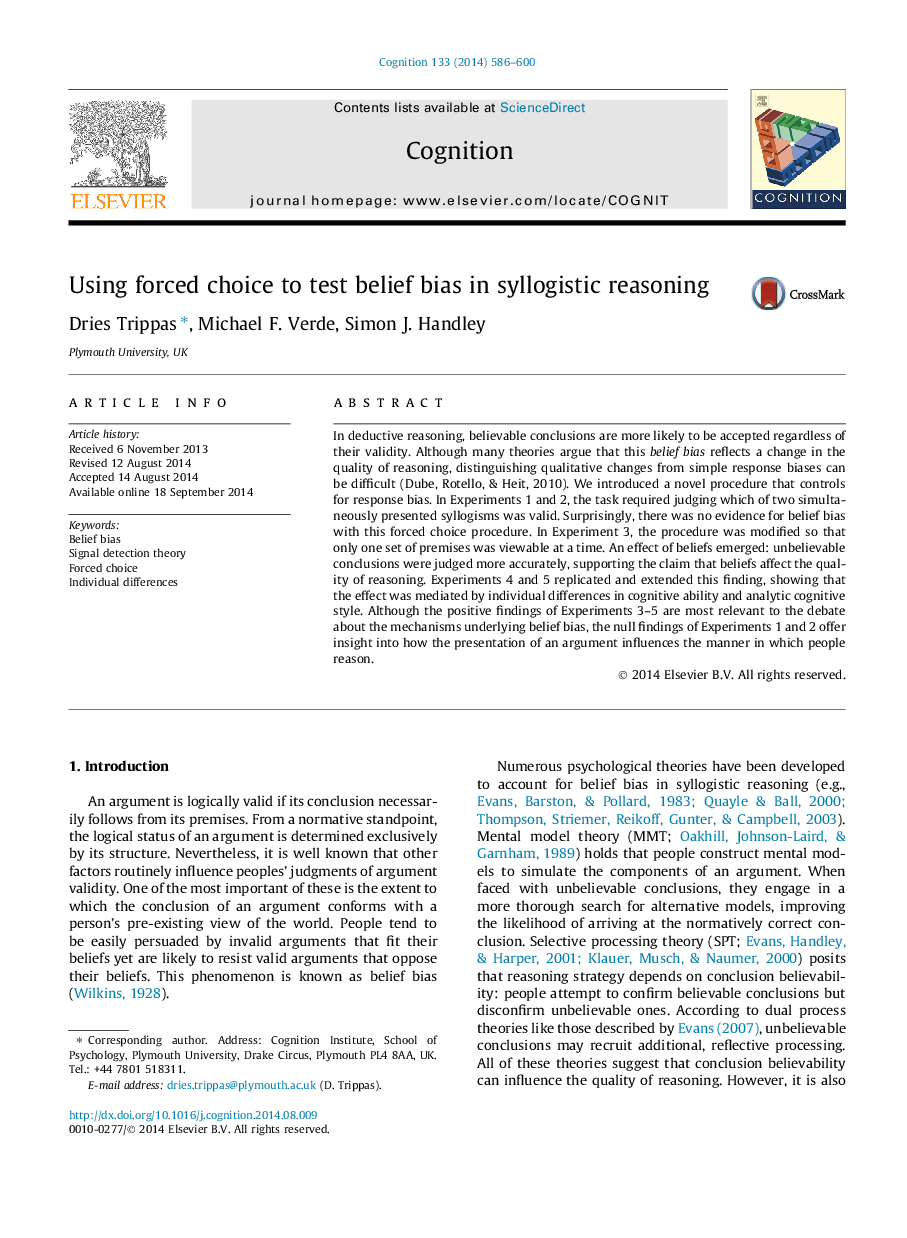| Article ID | Journal | Published Year | Pages | File Type |
|---|---|---|---|---|
| 926359 | Cognition | 2014 | 15 Pages |
•Major reasoning theories posit that beliefs can qualitatively affect the reasoning process.•SDT (ROC) analysis has suggested that beliefs do not have an impact on reasoning accuracy.•A novel forced choice paradigm demonstrates that beliefs do have a qualitative effect.•The influence of beliefs is moderated by individual differences in cognitive ability and style.•Implications about the impact of forced choice on belief bias in reasoning are discussed.
In deductive reasoning, believable conclusions are more likely to be accepted regardless of their validity. Although many theories argue that this belief bias reflects a change in the quality of reasoning, distinguishing qualitative changes from simple response biases can be difficult (Dube, Rotello, & Heit, 2010). We introduced a novel procedure that controls for response bias. In Experiments 1 and 2, the task required judging which of two simultaneously presented syllogisms was valid. Surprisingly, there was no evidence for belief bias with this forced choice procedure. In Experiment 3, the procedure was modified so that only one set of premises was viewable at a time. An effect of beliefs emerged: unbelievable conclusions were judged more accurately, supporting the claim that beliefs affect the quality of reasoning. Experiments 4 and 5 replicated and extended this finding, showing that the effect was mediated by individual differences in cognitive ability and analytic cognitive style. Although the positive findings of Experiments 3–5 are most relevant to the debate about the mechanisms underlying belief bias, the null findings of Experiments 1 and 2 offer insight into how the presentation of an argument influences the manner in which people reason.
